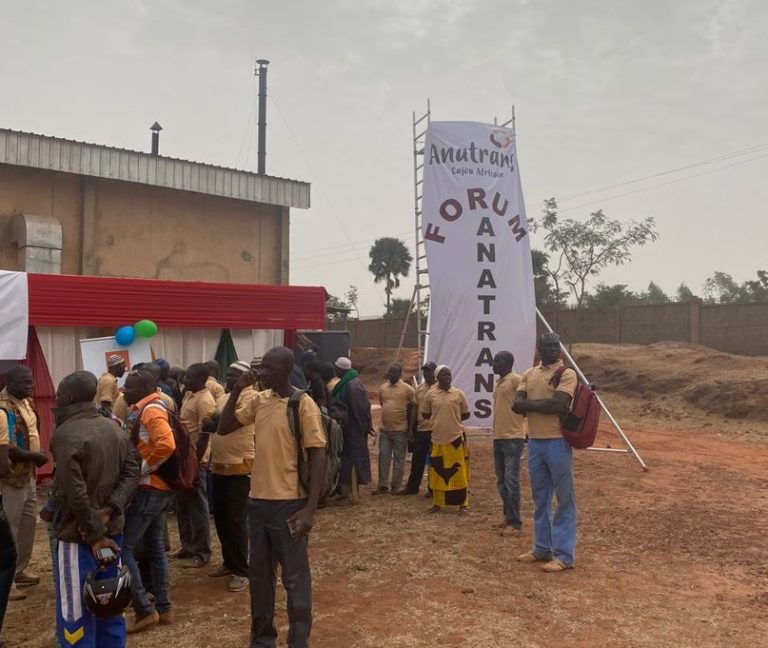
The importance of a safe and secure environment

The Corona crisis effects everyone in the entire world. Our partners worldwide notice the impact on their daily work. Together with them we continue to carry out our projects as much as possible. And we also take the time to look forward. We talked to Harm Voortman, CEO of Anatrans, the largest cashew processor in Burkina Faso, about the situation in his country, the importance of a safe and secure environment and the opportunities that he sees.
Anatrans was founded in 2009 and is located in Bobo Dioulasso, after the capital Ouagadougou the largest city in Burkina Faso. Economically agricultural trade and the textile industry are important for this city. Anatrans is a cashew processing plant and buys fair trade, organic and conventional cashew nuts from approximately 4000 local farmers. Besides buying they also develop, together with partners such as FairMatch Support and Woord en Daad, programs to work with the farmers on business development. Focus is to improve the product and the position on the market for these producers. At the plant of Anatrans the cashew nuts are peeled and sorted for export to customers in Europe and the United States. Around 1500 staff members are working at Anatrans, 75% are women.
Trading season
Harm: “In march we always close our plant for cleaning, maintenance and painting. On the first day of April we open again and start the processing of the raw cashew nuts. Bobo Dioulasso, where we are located, and Ouagadougo are in quarantine at this moment. No one is allowed to leave the city or come in. Except for goods. We’re happy that the transport of goods continues for now because the trading season is currently in full swing. So buying from our farmers can proceed.
At this moment we work together with the farmers on the transport of the nuts to Anatrans. Yesterday we received 18 trucks with 530 ton of raw cashew nuts. Normally we would start to operate but under current conditions we have postponed opening by a week. And will perhaps postpone further. There are few guidelines from the government. We’re in contact with them and we explained the need to open and be operational”.
The importance of a safe and secure environment
“Why I think this is important? The issue here is that we work with 1500 seasonal workers who do not have a large buffer. Their reality is that they need to work to put food on the table for their families. For them, a day without work means a day less eating. So when we can provide these people a job with safe conditions to ensure that they have the resources to take care of themselves: food and health care in this case.
If we can operate we will take measures. We will check the temperature of our employees, we provide soap and water and we will be operational 24 hours a day so that we can work in smaller groups. When we can’t operate, these people are on the street without a safety net. They need to find another job which probably involves small commerce like selling goods by the roadside. Here they don’t have access to water, soap or other safety precautions. We’re now waiting for feedback on our covid-19 response plan from the health authorities”.
Supply chains are interconnected
Another issue is that the commercial supply chain is fully interconnected. When we, as Anatrans, buy from our farmers we pay them with finance made available by international impact financiers. The moment we finish processing, the raw cashew nuts are being shipped to Europe or the United States and we can repay the money. With the uncertainty of lockdowns and the probability of defaults in their portfolios financiers hit the brakes and prefer to keep their cash. The chain is uncertain at the moment.
Uncertainty is part of life
“What I notice here in Burkina Faso and at our company is that people accept that uncertainty is part of life. Setbacks, poor health care, illness and death are part of the daily life. People are used to this here and they accept it. But of course we are aware and take measures. I’m proud to see that people are resilient. At our company we came up with a plan to continue our work and to provide people with jobs and food on the table. We have our role to play in the chain to work with our farmers, with our people on the floor at the plant, to offer a bit of security”.
Want to know more about our partners and the impact of the corona virus? Please read this blog about our employees in West Africa.

